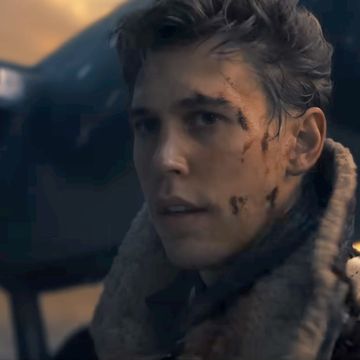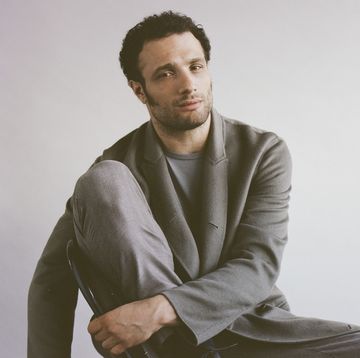"You have nothing but a war inside you," Frank Castle is told midway through The Punisher. There's a clumsy poetry to this line, delivered by a drunk and belligerent friend (Ebon Moss-Bachrach). It sums up precisely why Castle, played with soulful conviction by Jon Bernthal, is a tragic figure and not a vigilante badass to root for, a veteran who has simply traded one war for another.
Frank Castle is a hollow man, driven to exact vicious and seemingly endless vengeance for the murders of his wife and children, which took place shortly after his return from Afghanistan. To dismiss this, as some have, as an ill-timed show glorifying gun violence is to willfully miss the point. Though its message gets muddied along the way, and its narrative sometimes feel aimless, The Punisher is a compelling and complex horror story about the military, exploring the trauma of combat as effectively as Jessica Jones explored the trauma of sexual assault.
The latest show out of the Marvel-Netflix stable, The Punisher was created by Steve Lightfoot, who previously served a key producer on Hannibal, one of the best shows ever made about violence. Its major villain is a high-ranking CIA commander who orchestrated a secret, illegal "death squad" in Afghanistan, funded by heroin smuggling and staffed by a team of soldiers including Castle and his brother-in-arms Billy Russo (Ben Barnes). This commander, William Rawlins (Paul Schulze) is a genuinely repugnant villain because of the real bureaucratic brutality he represents ("Men like me make the plans," he says. "Men like you shed the blood.") Larger-than-life though the conspiracy plot may be, what underlies it is the very real and widely acknowledged way in which the military trains men to be killers, then spits them back out into society with limited resources and expects them to re-assimilate.
Enter Lewis Wilson (Daniel Webber) as a more conflicted kind of supporting villain, a younger veteran who comes home steeped in PTSD and rage and a feeling of deep betrayal towards his country, and progresses in exactly the worst way you expect. The show's exploration of homecoming is not limited to the male perspective; one standout new addition is Amber Rose Revah as Dinah Madani, an agent also formerly stationed in Afghanistan, who returns to New York questioning her orders after a brush with Castle.
Where The Punisher gets into trouble is in its attempt to directly engage with gun control as a debate. The season's otherwise stellar tenth episode—a tense, non-linear action climax which brings together all of the show's major players in a single location—is marred by a clunky conversation between a senator (Rick Holmes) and Daredevil mainstay Karen Page (Deborah Ann Woll). The senator, who's in favour of stricter gun legislation, is portrayed and treated as a clown, with Karen placed awkwardly in opposition to him; she carries a handgun for personal safety with good reason, but has never before been portrayed as overtly pro-gun. The whole sequence feels like a confused attempt to get out ahead of controversy, and an unnecessary one, because the show's utilitarian approach to weapons is the opposite of fetishistic. Automatic weapons feature heavily, but so do knives, handguns, fire, hammers, bare knuckles and, at one stage, a bow and arrow.
For all of its no-holds-barred brutality, this also a surprisingly emotional show, light on macho posturing and heavy on the exploration of profound pain and grief. Castle's grim struggle is punctured by endearing, antagonistic buddy comedy with Bachrach's Micro (a former NSA analyst backed into the same corner as Castle), and a touching relationship with his army buddy Curtis (Jason R. Moore) who runs group therapy for veterans. And then there is Castle's charged, intimate dynamic with Karen, which has progressed from a surprising bond in Daredevil to a slow-burn romance for the ages here.
Despite the muddled messaging and the requisite two or three filler episodes which plague every show in this wheelhouse, The Punisher is one of Marvel and Netflix's most cohesive and impressive productions yet. Though the line "I fought for this country, and it's got no place for me," is not spoken by Castle, it gets at the core of him: a broken man created by a broken institution, seemingly doomed to repeat the same violent cycle because he lacks the tools to do otherwise. Whether the Marvel universe will ever let him break that cycle remains to be seen – superheroes, even the anti- kind, aren't prone to change – but Bernthal and Lightfoot have created such a rich character that I'm along for the ride regardless.














